
Jean Baptiste Apuatimi, Tiwi Islands
The exposure of Aboriginal art to the West had its inception at the aboriginal community of Papunya in the Western Desert of Central Australia. Just like the vivid wildflowers that fill the local ochre terrain in the middle of winter, their art was a rare juxtaposition adapted from the Australian landscape. Although the indigenous art was originally developed for body painting, bark & cave art and ceremonial ground paintings, once the Papunya artists were introduced to canvas and tube paints in the 60’s, they quickly adapted to the new medium. Many of the key artists from this era were highly respected senior men with full ritual and ceremonial knowledge. The paintings were steeped in ancient mystical knowledge and had an intimate connection to the mythological beings of the Tjukurrpa or Dreamtime. They were eager to teach, and to maintain a record of their dreaming country, as well as paint for profit.

Chern’ee Sutton – Jurutu
The diversity and quality of Australian Indigenous art reflects the richness and deep heritage of Indigenous culture and the distinct differences between tribes, languages, dialects and geographic landscapes. Art has always been an integral component of Aboriginal life, connecting past and present, the people with their land, and the supernatural and reality.
Many paintings by Aboriginal artists, such as those that represent a “dreamtime story”, are shown from an aerial perspective. The narrative follows the lie of the land, as created by ancestral beings in their journeys or during creation. Australian Indigenous art is the oldest ongoing tradition of art in the world dating back more than 30,000 years. Details gleaned from these drawings are the merest fragments of a rich and extensive mythology that exists around the natural features of the country.

Cultural artifact ceramic figures – Jimmy Thaiday

‘Honey Ant Dreaming’ ground painting
Robert Edwards (past Curator of Anthropology at the South Australian Museum, stated –
“Each line and design has symbolic importance and has its complement in the dance and song performed at its making and its ceremonial display. Preservation of the ritual, unaltered down the ages, demands strict adherence to traditional form and design but natural desire for aesthetic expression promotes the development of elegance, technique and delicacy of touch.”
The artists of Papunya and those at other indigenous art centres have followed a collaborative path of preserving and sharing the knowledge of their ancient stories and symbols with their fellow artists. Their arts have been an excellent vehicle for unity and continuation of their traditions and providing an opportunity to share it internationally.

‘Star Ark’ – Arone Meeks

‘Sunken History’ – Arone Meeks

Aaron-Meeks – ‘Irukandji II’

Torres Strait Islander artists — Ceramic sculptures by Ellarose Savage and Jimmy Thaiday

Irene Entata

Alison Milyka Carroll

Incised ovoid pot Anne Thompson
Ernabella Ceramics, Ngayuku Walka VII, 2015

Melanie Hava — ‘Brolga Greetings’

Anne Thompson

‘At Play’ – Paul Roget

‘Women’s Dreaming’ – David Corby Tiapaltiarri – painting
1972

‘Part of the game (Chris Lewis)’, covered vase by Anita Mbitjana Ratara
2015 Hermannsburg Potters, Northern Territory

Sgraffito vase – Anne Thompson
Ernabella Ceramics, Sabbia Gallery

‘Birth of Rainbow Serpent’ – Paul Roget
Salt of the Earth series
‘Salt of the Earth’ is an illustrative journey into the traditions and magic of indigenous Australian’s seen through a western surrealistic eye. A pictorial witness of an indigenous cultures beauty, dignity, and deep partnership with their land.

‘Birth Of The Moons’ – Ainslie Roberts

The leafy sea dragon relief vase – Christina Gollan

Clifford Possum Tjapaltjarri – Papunya dot art Corroboree painting

‘Creation of the Coorong Birds’ – Ainslie Roberts

Australian indigenous vase ‘Kungkarangkalpa II’ – Derek Jungarrayi Thompson
52 cm height, Ernabella ceramics,

‘Kungkarangkalpa–Seven Sisters’ – Derek Jungarrayi Thompson
2015, Ernabella Ceramics, Sabbia Gallery

Derek Jungarrayi Thompson, Ernabella Ceramics – ‘Watersnake Story’

‘Earthbow’ — Paul Roget
Salt of the Earth series

Ellarose Savage

‘Liru Kutjara II’, Derek Jungarrayi Thompson stoneware vessel with sgrafitto decoration
Ernabella Ceramics, Sabbia Gallery

‘Wanampi I’ – Derek Jungarrayi Thompson, 2014
Ernabella Ceramics, Sabbia Gallery

‘Waubin and Epili,’ Gordon Hammond 2014
Gab Titui Cultural Centre
Photos: George Serras, National Museum of Australia

Derek Jungarrayi Thompson — ‘Wanampi II’, 2014
Ernabella Ceramics, Sabbia Gallery

Ernabella Ceramics , Ernabella Womens Grouping of ceramic vessels
Sabbia Gallery, 2016

Derek Jungarrayi Thompson—‘Wanampi Muni Ngintaka’,
Ernabella Ceramics 2013

Ernabella Ceramics, Janelle Muwitja Nakamarra Thompson – ‘Ngayuku Walka II,’
2016, stoneware with sgraffito, H 48.5cm

Ernabella Ceramics, potters Ngunytjima Carroll & Derek Thompson, 2014

Ernabella Ceramics, Pepai Carroll – ‘Walungurru II’
2015, stoneware with sgraffito, H 45.5

Ernabella Ceramics, Pepai Jangala Carroll ~ ‘Tali’, 2012, stoneware,
Ernabella Ceramics, Sabbia Gallery Height 30 cm

Doris Bush Nungarrayi painting ~ ‘Tjurrpinyi (Swimming at Haasts Bluff)’
2013

Rachael Mipantjiti Lionel ~ Kapi Wankanya
2016, stoneware with sgraffito, H 46cm

Ernabella Ceramics, Rachael Mipantjiti Lionel ~ ‘Ngayuku Walka XX’,
2015, stoneware, H 29 cm

Ernabella Ceramics, Rhoda Tjitayi – Anumara Tjukurpa ~ ‘Caterpillar Dreaming’
2015, stoneware, H 31 cm

‘Dreamtime Sisters’ ~ Colleen Wallace Nungari

Yaritji Jack ~ ‘Ngayuku Walka III’
2016, stoneware with sgraffito, H 49 cm
Ernabella Ceramics, Sabbia Gallery

Gorrogarrah Binjdil — Three amorphic dishes

Derek Jungarrayi Thompson — ‘Ngintaka’ stoneware with sgraffito vase
2017

Ainslie Roberts, ‘Sound of Wind’

Jack Dale ~ ‘Wandjina’ 2007

Lavinia Ketchell (Erub Arts), necklace

Lawrence Omeenyo Umpila ‘Missus and Mister Croc’
2013 earthenware

Leah Jackson

‘Linga of Ayers Rock’ – Ainslie Roberts

‘Lyerrtjina (budgerigar) ‘ – Judith Pungkarta Inkamala
2016 by Hermannsburg pottery

Nellie Marks Nakamarra

Pepai Jangala Carroll, ‘Walungurru’,
2015, Stoneware, H 20 cm

Paul Roget — ‘Tribal Cleansing’

‘Rainmakers At Dawn’ by Ainslie Roberts.

Rachael Mipantjiti Lionel, Ernabella Ceramics, ‘Ngayuku Ngura VIII’
2015, stoneware with sgraffito, H 53 x D 15.5cm

‘Creation of the Southern Cross’ – Ainslie Roberts

Ainslie Roberts, ‘Death of the Moon Woman’

Ainslie Roberts, ‘The Dancing Echidna’

Robyne Latham ceramic ‘Pod’

Three ‘Pods’ – Robyn Latham

Rupert Jack, ‘Maku’
2014

‘Salt Of The Earth’ – Paul Roget

‘Seed Pods’ – Paul Roget

‘The Birthing’ by Paul Roget

Ainslie Roberts – ‘The Desert Ice-Men‘
From central Australia comes the myth of the Ninya, or desert ice-men, whose hair is made of icicles. In the summer, the Ninya hide away in their caves, but they emerge on winter evenings and cause cold and frost to fall upon the land. As sunrise approaches, they rush back to their caves before they melt and this rapid movement creates the icy winds of desert mornings.

‘The Happy Goana Mama’ dot painting by Ousha Jenamoia
2011

‘The Origin of the Playtpus’ – Ainslie Roberts

‘The Patient Fisherman’ — Paul Roget

‘The Sound of Lightning’ – Ainslie Roberts
In the wet season, the thunder man Mamaragan, roaring with laughter, beats the great stones of the sky together.

Aboriginal art by Walter Tjampitjinpa ~ ‘Water Dreaming’
1972

Tjimpuna Williams, ‘Piltati Tjukurpa – A Story from Piltati I’,
2015, Stoneware, H 80 cm
Ernabella Ceramics, Sabbia Gallery

Tjimpuna Williams, ‘Tali – Sand Dunes’
2015, Stoneware jar, H 47 cm
Ernabella Ceramics, Sabbia Gallery

‘Turning Fire’ -Paul Roget

Univers Mininga

Alison Milyika Carroll, Rachael Mipantjiti Lionel, Alison Milyika Carroll @pukatjapottery @sabbiagallery

Tjunkaya Tapaya with works by fellow Ernabella women – Alison Milyika Carroll and Carlene Thompson.
NEXT POST — Mid-century modern interior decor design






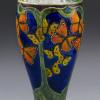

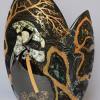
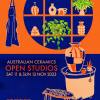
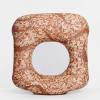
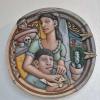
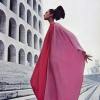
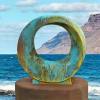
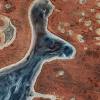
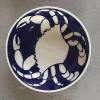
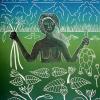
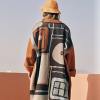
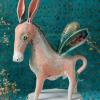
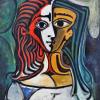
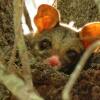
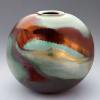
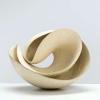
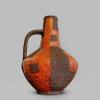
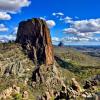
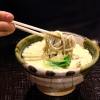
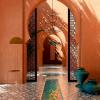
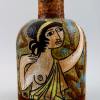
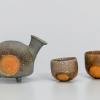
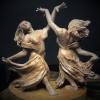
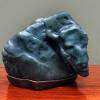
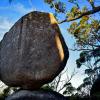
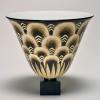

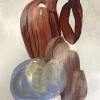
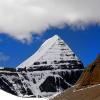
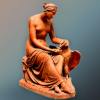
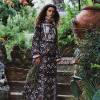
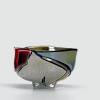
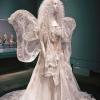
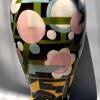
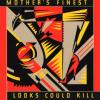
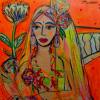
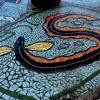
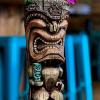
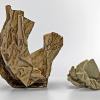
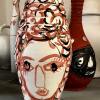
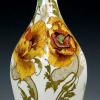
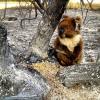
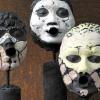
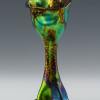
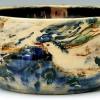
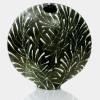
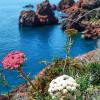
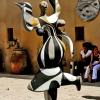
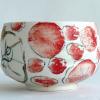
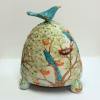
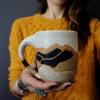
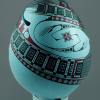
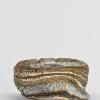
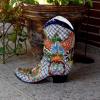
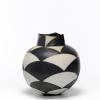
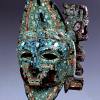
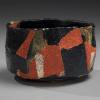
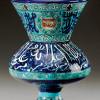
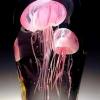
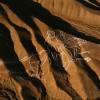
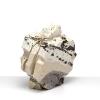
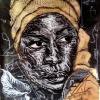
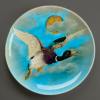
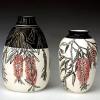
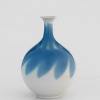
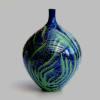
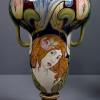
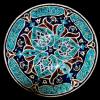
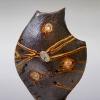
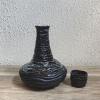
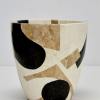
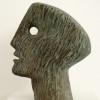
One Trackback
[…] ‘Indigenous Australian arts compilation’ […]